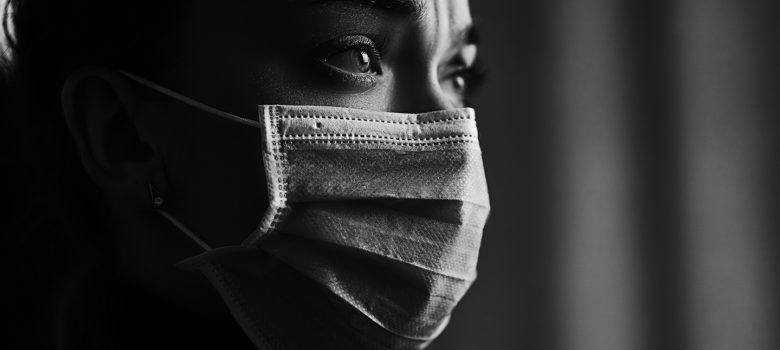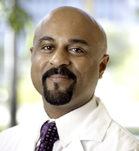

Supporting Family Members, Friends and Caregivers After Loss
by Santosh Kesari
This article was published on U.S News and World report, December 11, 2020
For loved ones left behind during the pandemic, suffering may endure for years.
AS I WRITE THIS, COVID-19 has taken the lives of nearly 300,000 Americans. Each death leaves behind a circle of survivors – family members, friends, co-workers and neighbors – struggling with the loss.
Family members or caregivers, in particular, may suffer the most. They may have cared for their loved one at home for weeks, watching in terror as symptoms intensified, hoping to see the tide turn. Others were left in shock at the speed of the virus, which took their loved one in a matter of days. They may feel intense grief or guilt that they could not be with their loved one in the hospital to provide comfort or say goodbye.
I’m familiar with the anguish of loved ones left behind. I treat patients and pursue research on brain cancers. Many of my patients have glioblastoma, a particularly lethal form of the disease. Despite progress in immunotherapies and targeted therapies, outcomes for glioblastoma have improved only incrementally. The survival rate averages a mere 14 months.
For individuals with a fatal disease like COVID-19 or cancer, death brings an end to suffering. Yet for the loved ones who remain, suffering may endure for years.
A colleague of mine heard a woman speak at a conference. Her husband had passed away several years earlier, and she was still struggling to define her role in life. Having identified so strongly as a caregiver, she forgot who she was. And the daughter of one of my patients quit her job the day her mother was diagnosed with glioblastoma. She moved back to Los Angeles to help her father in providing full-time care. She remains haunted by images of illness, deterioration and, as she put it, “the nightmare we lived while others were going about their day.”
The medical system tends to focus on the needs of patients and their physical, emotional and logistical needs. As a physician, I strive to alleviate the physical symptoms of the disease and the side effects of chemotherapy and radiation. At my institution, the Pacific Neuroscience Institute, we provide psychological counseling and logistical support to our patients throughout their treatment journey. We’re part of the Brain Cancer Quality of Life Collaborative, a consortium of eight institutions that aims to design and conduct research that enhances quality of life for brain cancer patients and their families. And our Center for Quality and Outcomes Research (a collaboration with our sister entities the Saint John’s Cancer Institute and Providence Saint John’s Health Center) looks at the impact of cancer on family members.
But there is no formal support for the patients’ families as they struggle with changing roles, uncertain prognoses and a host of logistical challenges. Other than an occasional support group, little exists to address families’ well-being. We in medical care need to do better at identifying and managing the needs of caregivers, both during their active role and after their role ends.
We know that caregiving takes a toll. Studies show that those caring for loved ones with chronic illness suffer physical effects, including elevated heart rate and blood pressure levels. Sustained over time, these symptoms can lead to cardiovascular problems. Not surprisingly, caregivers also show higher rates of depression, anxiety and poor sleep.
At this time, there is no formal mechanism for screening and treating caregiver burden. Nor is there much research on the burdens that continue to plague family members even after their loved one has passed away.
One potential area that may be harnessed to alleviate caregiver burden involves telecommunication and social media. During their loved one’s illness, caregivers face isolation and separation from their support networks. Telecommunication can help reduce that isolation. And video conferencing platforms such as Zoom offer medical providers a forum to provide programming designed to offer emotional support. Our team is looking at how to pilot such a program with the goal of collecting data on measures that improve outcomes for caregivers.
In my own practice, I keep in touch with many family members of my former patients. Just recently, I received an email from the daughter of a patient who passed away more than a decade ago. She sent me an article about an entertainer diagnosed with glioblastoma, the same disease that claimed her father’s life. Perhaps because brain cancer is such an intensive and concentrated experience, our relationships often form and deepen quickly. Even after their loved one has gone, some family members are not ready to let that relationship go, and frankly, neither am I.
But while it’s not practical to expect all physicians to maintain relationships with their former patients’ families, it is practical – and necessary – to perform more studies looking at the magnitude of physiological, psychological, logistical and financial burdens caregivers continue to shoulder after their caregiving role has concluded. We need to come up with solutions and strategies to ease their burdens, both while they’re immersed in caregiving and after their loved ones pass away. And we need to personalize these strategies, recognizing that each individual is different.
One thing I’d like those strategies to address is the guilt that so many family members and caregivers carry, convinced they didn’t do enough or remorseful about carrying on when their loved one can’t. I want them to understand that loss is a part of life. Resuming life is not a betrayal of their loved one. In fact, I feel confident saying that while loved ones would want to be kept close in memory, they would also want their survivors to live life to its fullest.
About the Author

Santosh Kesari
Santosh Kesari, MD, PhD, is Director of Neuro-oncology at Pacific Neuroscience Institute and Chair and Professor, Department of Translational Neurosciences and Neurotherapeutics, Saint John’s Cancer Institute at Providence Saint John’s Health Center. He is a world leader in the innovative treatment of all types of malignant brain tumors. Dr. Kesari and his team conduct leading-edge clinical trials in immunotherapy and biomarker-based brain tumor therapies.
Last updated: December 18th, 2020